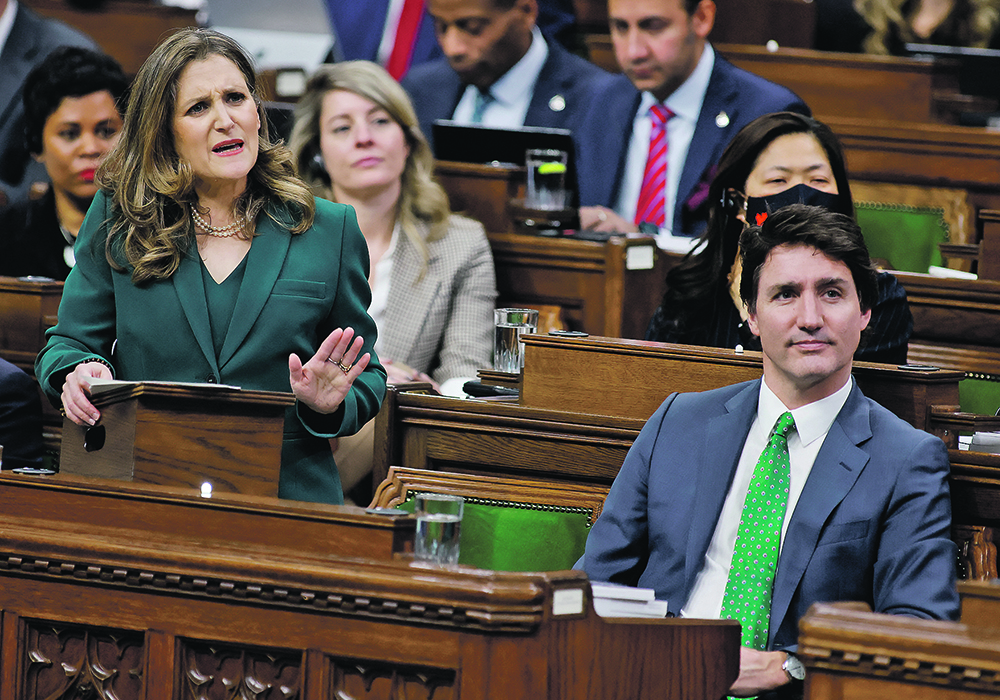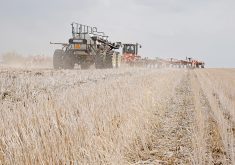Canada’s financial landscape may be about to transform because the freshly unveiled 2023 federal budget could inject billions of dollars into the economy.
One key feature of the 2023 federal budget is a large package of investments aimed at helping to mitigate the effects of climate change. The government’s plans revolve around investments in renewable energy, reducing greenhouse gases and supporting sustainable agricultural practices.
One of these initiatives includes a proposal to provide $34.1 million to Agriculture Canada’s On-Farm Climate Action Fund. The increased support’s purpose is to support adoption of nitrogen management practices for Canadian farmers to optimize and reduce the need for fertilizer.
Read Also

Higher farmland taxes for investors could solve two problems
The highest education and health care land tax would be for landlords, including investment companies, with no family ties to the land.
The biofuels sector is booming and the production offers economic opportunities for Canada’s energy sector, as well as for Canada’s agricultural sector. Prairie farmers can supply feedstocks such as canola to produce biofuels.
Another initiative to support the long-term health of Canada’s climate includes increased funding to protect our country’s natural bodies of fresh water.
The budget has proposed to provide $650 million over the next 10 years to support monitoring, assessment and restoration work in the Great Lakes and several other lakes. The goal of this investment is to protect Canada’s fresh water, which equals about 20 percent of the world’s fresh-water supply from pollution and other threats.
To combat the lack of primary health care in rural communities, the government has strengthened the Student Loan Forgiveness plan for doctors and nurses. It gives debt relief to those who work in underserved rural and remote communities. The budget has set aside $45.9 million over the next four years, starting in 2024-25, to expand the program to more rural communities, including all communities with populations of 30,000 or fewer.
Farm production costs have increased in Canada and it is important that producers have access to cash flow to cover input costs until they sell their products. The 2023 budget proposes to provide $13 million to increase the interest-free limit for loans under the Advance Payments Program to $350,000 from $250,000 for the 2023 program year.
To try to relieve stress caused by rising grocery prices, the government has proposed a one-time grocery rebate. The rebate will provide $2.5 billion in inflation relief to 11 million low- and modest-income Canadians and families.
The grocery rebate will provide eligible couples with two children up to $467, while single Canadians without children will receive an extra $234. The rebate is planned to be delivered as soon as possible once legislation has passed and will be delivered though a one-time payment from the Canada Revenue Agency.
The government hopes the additional spending will stimulate growth in the economy and ensure long-term prosperity.
From climate change investments to support for supply management, farmers across Canada will watch closely to see how the government implements these initiatives and what impact they have on their businesses.
Colin Miller is a chartered accountant and partner with KPMG’s tax practice in Lethbridge. Contact: colinmiller@kpmg.ca.















